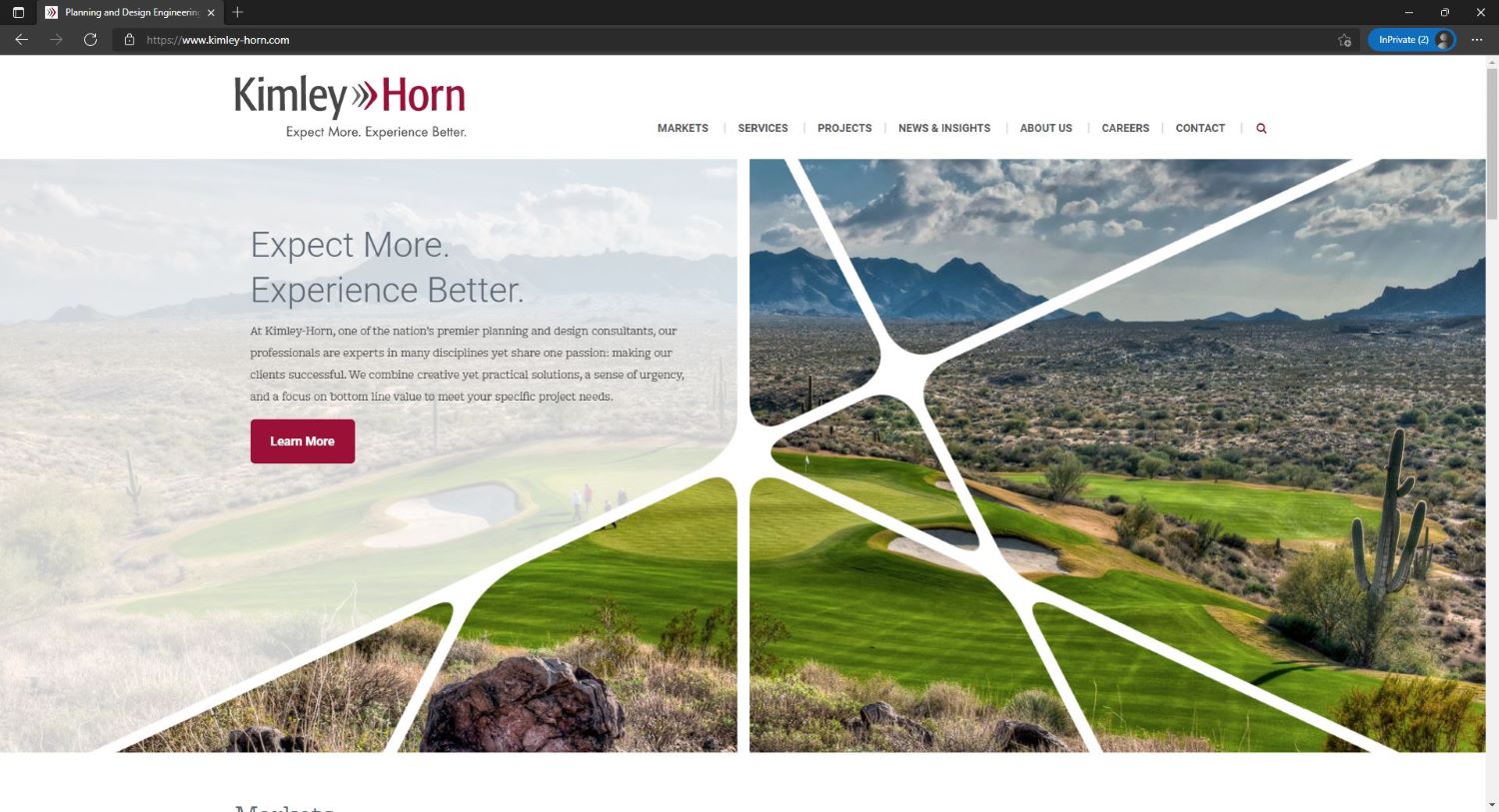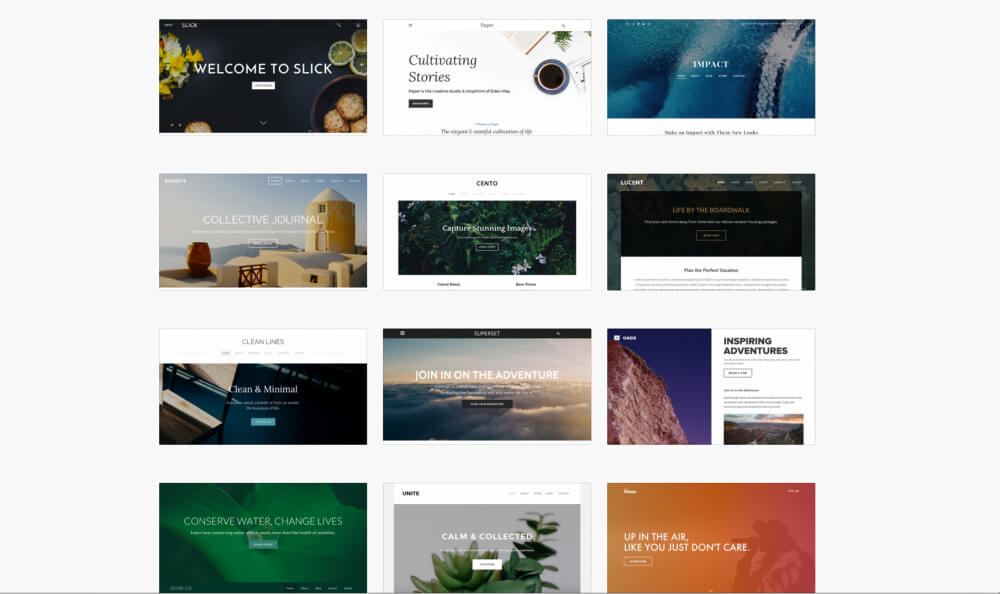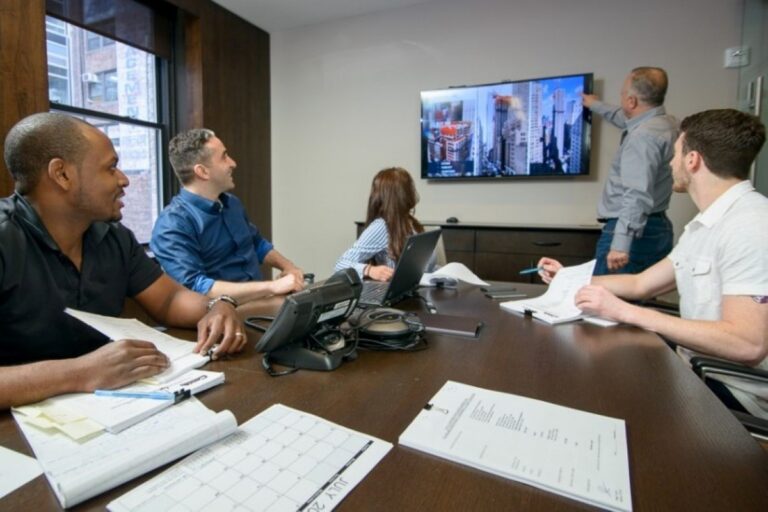Crystal-Clear Insight into Small Business Websites’ Cost
It goes beyond any doubt that establishing a solid online presence with a website is of utmost importance to the success of every single business, especially within our digital-driven world. Thus, if your small business has yet to have one, it’s high time that you started off building a stunning site for your own.
“How much do small business websites cost?” seems to be a common question for almost all SMB owners, and actually it’s one that can only be answered by considering several other factors. The cost of a website will vary – substantially – subject to the exact size of your business as well as the specific online needs.
From a simple do-it-yourself site to a custom-designed product, anything is possible. A brief look at the landscape from different perspectives will give you an idea of how to budget for site-building costs. Then, let’s read on our two approaches under which small business owners can well tackle the question: How much does a website cost?
Website Cost Breakdown

Before going into great detail, it’s more than essential to first go through some fundamentals on website budgeting – answering the question of “How small business website cost is calculated?”.
Now, let’s take a look at some key components involved in setting up a small business website:
#1. Domain Name
- Personalized domains have to be purchased
- Your small business has a better chance of recognition with a personalized domain
#2. SSL Certificate
- Annual cost
- Is needed to create secure websites, especially if there are money transactions
#3. Website Hosting
- The monthly or annual cost
- Cost-effective to have a third party host
#4. Content Management Systems (CMS)
- Customized CMS have both setup costs operational costs
- Customization allows your small business website to provide the best user experience.
#5. Website Design and Redesign
- Customized designs have costs like image creation, unique theme development, plug-in development, licenses and so forth
- Customization is essential for brand recognition
#6. Digital Marketing
- SEO, PPC, Content creation.
- Without promoting your website it is difficult to drive online customer traffic to your small business website. Like with any business, marketing will take up a large proportion of your costs.
#7. Maintenance
- Software updates, license renewals, troubleshooting
- Up-to-date websites have the most chance of getting good search engine rankings
Basically covering these essentials, your would-be website is going to cost you around nearly $1,000 or more than $10,000 in terms of actual dollars. That’s a big price range.
So, let’s break things down so you can get a realistic estimate for what it will cost to design and develop your website.
Two Pricing Approach for Designing and Developing A Small Business Website
Approach #1: Hire A Professional to Lend You a Helping Hand
Should you be a super busy entrepreneur running your own business and/or you’re just not a “techie” person, then hiring someone to build your site for you is going to be a smart choice.

For web designers – those who did list their prices publicly, the going rate in 2019 to build a modern, professional small business website typically ranges from $3,000 to $6,000. Yet, this figure could be as much as $20,000 depending on the number of pages on the site as well as the amount of customization required.
Should you take interest in WordPress functionalities, then let’s cast a look over the summary chart of hiring a professional to help you build a WordPress website:
| Website Setup Costs | Hosting Cost: $5 – $250/month Hiring Pro to Setup: $50 – $200 (1-time fee) Time: 1 to 6 hours |
| Website Builder Software Learning Costs | Paid Tutorials: $50/month Time to Learn Basics: Few hours Time to Learn WordPress: Weeks |
| Website Design Costs | Basic Templates: $35 – $50 Premium Templates: $80 – $200 Template Alterations: $300 – $1,000 Custom Design: $5,000 – $10,000+ |
| Website Building Costs | Free if you do it yourself (but will cost you time) Hourly Costs of a Designer: $50 – $80/hour Average Cost of Content Population: $500 – $5,000* The range is wide as it depends on how much content you have and how many pages. |
| Website Maintenance Costs | Developer Cost: $100 – $180 per hour Estimated Annual Cost: $500 – $1,000 |
Once you have a ballpark idea of what things cost, it’s time to take a closer look at the specific factors affecting the price of building a small business website:
Page volume
So, let’s imagine what if a web development firm offers a 10-page website package for $3,000, but your site needs 25 pages? A good rule of thumb is to add about $100/page for each page over and above what’s included in their standard website package. In this example, 15 additional pages would entail an additional cost of $1,500. Add this amount to the original base price of $3,000, then the new total will be $4,500 at your expense.
Every situation will vary, of course, but at least this does give you a reasonable cost estimate based on common pricing in the industry.
Custom site layout
Actually, every website starts out with a theme or template, but that’s just a starting point. Such a chosen theme or template needs to be customized – well-tailored to your interest – so that it meets your requirements as well as matches your company brand.
And as a rule, the more customization required, the greater the cost!
Custom images & graphics
Fancy images and graphics can give your site a one-of-a-kind look, but again, it comes at a price. Besides, sophisticated visual effects often require special editing software and/or the services of a custom graphic design specialist.
Custom programming
Sometimes you can find a plugin that will provide the functionality you want right out of the box, such as image carousel, membership portal or a payment calculator.
Other times, getting your site up to your wishes requires significant trial/error and testing. In a perfect world, everything would be plug-and-play and work perfectly the first time — but that’s rarely the case.
Number of design revisions
Most website projects start with an initial concept design (kind of like a rough draft) based on what the client said they want. It’s then common for website designers to offer 1 or 2 rounds of design revisions to incorporate their client’s change requests to arrive at the final design.
In practice, for endless reasons, the number of design revisions could go up to as many as 3-5 rounds or even more until a design agreement is reached. So, each design iteration will come at a price, which adds to the overall cost of the project.
Content creation
Obviously, solid and thoughtful content is the foundation of any great website. Should you be launching a new site but don’t have any content yet, it needs to be created immediately. Or, in case you do own an existing site but your content strategy is weak, stale or outdated, it will need to be refined or enhanced without delay. Depending on how much information you need to publish, your website might have 5-10 pages or more than 50.
After all, when it comes to working with a professional to establish your business site, there are some handy tips that are worth your attention:
- If you would like to hire a website developer to help you with your website, but you come up against some financial difficulties and don’t feel like you can afford one lump sum payment upfront, see if they can offer financing. By that way, you obtain a really stunning website rightnow to fuel your business’s growth while saving your bank account for other operational activities.
- Let’sbe extremely careful with “budget pricing”. Unusually low prices often mean that you may get shoddy workmanship, unpleasant experience or they’ll “nickel and dime” you for every little thing. As the saying goes, you usually get what you pay for.
Approach #2: Attempt to Do It Yourself (DIY)
If you have a basic understanding of web technology – technical expertise, aesthetic designing sense, … – and more importantly, you’re totally fine doing the work by yourself, you can definitely build your own website.

Several costs that come with running a website are essential. Fortunately, the raw materials you’ll need turn out not to be horribly expensive
Below are some of the unavoidable expenses you can expect to pay when having a new website developed:
Domain name:
It costs approximately $10 to $12 per year to register a new domain. Actually, there are a zillion registrars to choose from. Among them, NameCheap.com may possibly be your favorite one.
Website hosting:
Costs range from about $100 per year for standard web hosting from companies like BlueHost or HostGator to $300 or even over $500 annally for more robust web hosting from companies like WPengine or SiteGround — which is, to be honest, not really needed until your site is getting gobs of traffic (more than 100,000 monthly visitors, for instance), at which time you could upgrade to a web server with more horsepower.
SSL certificate
Whether you are planning to sell things directly from your site or not, it’s a “should” to secure your own site with HTTPS protocol. HTTPS, standing for Hyper Text Transfer Protocol Secure, will appear in the URL when your website is secured by an SSL certificate.
In practice, you can get an SSL certificate for as little as $10 per year or as much as $200 to 300 per year, which much depends on your specific business needs. Good news for you is that some web hosting service providers now do offer a free SSL certificate as an incentive to host your site with them; hence, you can take every advantage of this to save your money.
Premium website theme.
Adopting a theme will typically entail an additional amount of $100-$150. Actually, there are hundreds – if not thousands – of themes for you to choose from. Some free, some paid! Free theme is always an attractive option but it’s a “should” that you spend a few bucks and get a quality theme or template.
After all, a website with an aesthetically stunning design is always standing higher chances of driving “tons” of traffic, compared to the normal one.

Premium plugins.
Just like website themes, there is a wide range of plugins for your site – some free and some not, typically costing you around $100 to $200.
And again, you usually get what you pay for. It’s undeniable that there are several free plugins available for you – and many of them are good. But, of course, it may possibly take more time or limit some functionalities of your site.
Let’s do yourself a favor and invest a few dollars to get quality plugins. Gravity Forms or Envira Gallery may be some names that you should take into careful consideration.
Stock photos.
If you’re a good photographer or you already have high-quality images for your would-be site, then you’re all set. But chances are you will need to purchase some images to dress up your site a bit. In most cases, you can probably get all that you need – at least initially – for around $50 to $200. After that, you no longer have to be concerned about this and just buy what you need as your website evolves.

And another significant note is that … never, ever, ever just copy-paste images from other sources onto your site, unless you’re 1000% certain you have permission. Otherwise, you may possibly get sued. You must not prefer involving in a lawsuit for this trivial matter so let’s play it safe and just purchase your images.
Education
No matter how silly this may seem to be, it’s definitely true! Unless you work on websites every day, you’re probably going to have to buy a few books or take an online course or two to learn Photoshop, HTML/CSS coding language, etc. to get yourself up to speed in one or more areas of website design and development. There are no exact figures on how much it costs but normally, it ranges from $25 to $300.
So to estimate a final number, in total, you’re realistically looking at about $300-$600 in expenses to get up and running. Obviously, the main cost of the DIY approach is your time.
Even for a “super-simple” site, don’t be surprised if it takes you from 20 to 40 hours to produce something of decent quality that you can be proud of. And that’s assuming you’re already somewhat familiar with how to build a website. Should you be totally new to this, multiply that time estimate by 2x or 3x and gauge whether such an amount of time is worth it.
In fact, to “craft” a modern and well-engineered website is more time-consuming than most people previously realized. But, if you have more time than money right now and you don’t get overwhelmed by web technology, the DIY approach will be a perfectly viable option.
Bonus: Website Design/Redesign Cost
Within this ever-evolving digital era where every single business “consolidates” their online presence to win the supreme position in customers’ minds, you have to step your game up to stand out from your competitors. And one super-powerful weapon to fast forward your success in such a competitive online landscape is nothing but your website appearance – in other words, website redesign.
Actually, the cost of a website redesign can vary tremendously from as low as a few hundred dollars if you do it yourself to whoppingly millions of dollars for an advanced, custom-built website.
#1. The Cost of Doing Your Own Website Redesign
Understandably,
redesigning a website yourself is the cheapest option -it can range anywhere
from a few hundred dollars to around $3,000 or even more.
Again, the real cost of doing a website redesign yourself is the time and
hassle required. As a rule, the less money you spend, the more time and hassle
you can expect to deal with to “decorate” your site up to your wishes.
Should you already be planning on doing your own website redesign, then there are some handy tools to facilitate your works:
ThemeForest
Self-explanatory, this site does offer you with tons of affordable website themes (especially for WordPress) to choose from that usually cost around $30 to $100. Functionality, performance, and ease-of-use from those themes will vary widely.
Genesis Framework by StudioPress
Should you install on WordPress, the Genesis Framework is essentially the back-end of your website, allowing you not only to create content but also to edit the visual features of your theme with ease. Once you’ve installed the framework, you will install a theme, which is basically the aesthetic design of your website.
HubSpot’s Website Platform
If you’re willing to spend a little bit more, this option is going to be your seamless match. Costing $300 per month, HubSpot has several customizable themes for your consideration – or you can build a brand new from scratch using their drag-and-drop builder.
Besides this functionality, their website platform has everything you need built-in, from SEO to content management. Also, using HubSpot, you can hire a developer later to add more custom features or to tweak the design however you want.
#2. The Cost of Hiring a Freelancer
A good designer is going to charge anywhere from $2,000 to $5,000 for a simple website and upwards of $10,000 to $15,000 for a bigger website with more custom design features. Remember that these are just general numbers, and of course, they will vary depending on the experience of your designer as well as your project details.
When working with a freelancer, you can expect a design that looks amazing and functions well without any glaring flaws. Normally, they are likely take your ideas, come up with a few mock-ups for your references, and then they’ll build off of the one you like best.
In most cases, the freelance designer is primarily focused on delivering the aesthetic appeal you describe to them while suggesting certain features to improve user-experience.
The downsides is, nonetheless, that freelancers tend to be more “hit-or-miss”. Furthermore, they might not offer much useful know-how or insight outside of design knowledge, compared to some long-established agencies.
#3. The Cost of Partnering with an Agency
Should
you have strong financial capabilities, the ideal option would be to hire a
design agency to handle your website redesign as you get so much more value for
your money. A simpler website redesign can run anywhere from approximately $15,000
to $20,000, whereas bigger and more complicated websites will cost between
$20,000 and around $40,000.
As previously mentioned, cooperating with a design agency goes much further
than design: they are going to customize your website however you want and make
it look nearly flawless.
The aesthetics are only a small part of web design. Creative agencies do
seriously invest their time on the content, user-experience, conversion
rate optimization, and everything else that makes your website an invaluable
asset to your business.
The Bottom Lines
Within such an age of digital transformation, if you have yet to have a website for your small business, you are already left behind your competitors in the field. Whereas several tasks are required for getting a small business website up and running, its benefits are undoubtedly numerous, not the least of which is that you “own” your presence on the web rather than “rent” it via a social network.
Managing your small business as well as building your own site are already overwhelmed with several preparational activities but keeping your business image visible online is also crucial to skyrocket your success. Should you need any help with a dedicated team to get your SMB exposed to the digital world, don’t hesitate to get an online presence manager.
You May Also Like:









